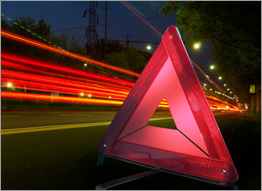
Services for people affected by violent crime need to reflect what is provided to perpetrators of violent crimes.
![]()

< back to surviving violent crime
At the point of personal tragedy, it is better to secure a statutory and multi-agency combination of services to protect and assist you as they have the power, expertise and duty in law.
Unfortunately, in Britain, there are very few credible advocacy organizations for people specifically affected by violent-related crime. There is a cluster of charity-status groups that at this time are definitely not desirable to include within expert help, or recommend. It is both ironic and disturbing that the criminal justice system exists because of victims, but so little qualitative or qualitative provision exists for victims of violence. It seems everyone fares better except crime victims, unlike those that perpetuate violent crime.
This cluster of generally non-productive groups are scattered around Britain and will be referred to as the victim club. They should be used with extreme caution if you need help if at all. Although they communicate with one another, some endorsed by government, even sit on government advisory groups, they also appear unable to work effectively with each other for the wider good of society. They have complex reasons for being involved and congregate in a cycle of unproductive conferences. Sadly, they fail to galvanize local community or national interest, respect or awareness including that of government. To use the term conferences exaggerates the usefulness of what takes place or the groups ability to change government opinion, make a quantifiable contribution to the lives of crime victims. Bizarrely, they generally also show an alarming level of ignorance about modern Britain and its richly diverse communities and types of crimes some communities are targeted by.
The victim club does not generally attract people who wish to be associated with them. The dilemma the victim club appears to have is they are stuck. They are stuck in that many of the key activists carry patently unresolved problems that directly get in the way of their own best intentions.
The victim club
A common cluster of factors exists that makes any of these groups very undesirable to use when in deep crisis and include:
General failure to attract well-trained volunteers;
Failure to attract well-trained volunteers fails to produce serious funding;
Failure to provide credible responsive strategies for developing themselves into effective services some after ten years! For example, some of the victim club state only those that are family and have experienced murder can help those affected by murder. This is silly: many people live in unmarried lifestyles, many victims of violent crime experienced violence within a family environment. Most families affected by murder state that they want experts to help them, and not another family, especially if they are stuck in their personal grief and loss, or using other's tragedy to advance egotistical ambitions.
The victim club tends to exclude and repel many sections of society and ethnic minority communities, gay people or single people who are not part of a generally accepted outdated notion of what family means in modern Britain;
The victim club cannot secure the respect of statutory services to help you;
The institutional power the Home Office, the Ministry of Justice, the Office for Criminal Justice Reform and Victim Support controls nationally over victims, dictates the national awareness for the health, social and legal needs of a growing large silent minority of victimized people. This puts crime victims in a ghetto and prevents the growth of quality services. Small groups cannot compete without support of the authorities, media and police. It goes against government talk about diversity and choice. There is no real choice for crime victims within this sector of groups and the victim club are not the best cohort to fill this gap at this point in time;
Within the victim club, are some very dysfunctional people and groups. There is no good power in the status of victim, nothing nourishing or productive to be trapped for many years as a permanent angry victim;
To be a victim of violence is a horrendous experience; indeed, an event of devastating life-changing impact. But, it does not automatically follow this means to be forever labelled and stuck as a permanent victim is correct, or desirable.
Many within the victim club cannot personally develop beyond having a permanent ‘angry victim’ state of mind, always out of control, always angry. No one benefits from this nor wish to be represented by such a group or person. People wish to progress and reclaim control and have nourishment in their lives, and to do more than survive. This does not belittle the raw anguished horror: it means most people need to progress with quality help;
The victim club would not have to be an unsatisfactory option at all if people affected by violent crime were afforded the same automatic choice of expert statutory services that violent criminals are automatically afforded.